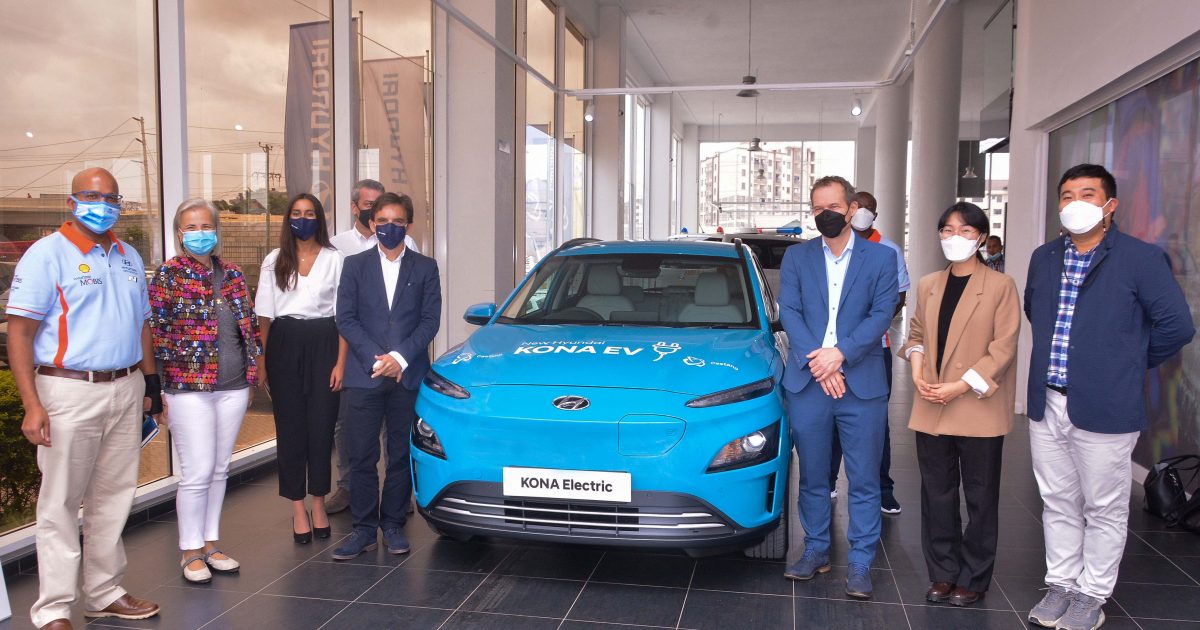Chinese EV Giant Neta Launches Affordable Electric Cars in Kenya, Sparking Green Revolution

China’s electric vehicle (EV) manufacturer, Neta, has officially entered the Kenyan market. This move marks a significant step in the expansion of Neta’s global footprint and underscores the growing importance of Africa as a market for EVs. The entry of Neta into Kenya is expected to stimulate competition and offer Kenyan consumers more choices in the EV sector.
Neta’s Global Expansion Strategy
Neta’s entry into Kenya is part of a broader strategy to expand its presence in emerging markets. The company has been actively pursuing opportunities in regions with untapped potential for EV adoption. By entering Kenya, Neta aims to capitalize on the country’s increasing demand for eco-friendly transportation solutions.
Neta’s strategy focuses on providing affordable and reliable EVs to markets that are still in the early stages of EV adoption. This approach is designed to build brand loyalty and establish a strong market presence before competition intensifies. By offering competitively priced EVs, Neta hopes to attract a diverse customer base, from individual consumers to businesses looking to green their fleets.
Kenya’s Growing EV Market
Kenya’s EV market is still in its infancy, but it has shown promising growth potential. The Kenyan government has been supportive of the transition to electric mobility, offering incentives such as tax breaks and reduced import duties for EVs. This supportive policy environment is expected to accelerate the adoption of EVs in the country.
Additionally, Kenya’s commitment to renewable energy sources, particularly hydro and geothermal power, makes it an ideal market for EVs. With a significant portion of its electricity coming from renewable sources, the environmental benefits of EVs are even more pronounced. This aligns with global efforts to reduce carbon emissions and combat climate change.
Neta’s Product Offering in Kenya
Neta plans to introduce a range of EV models in Kenya, catering to different segments of the market. The company is expected to launch both passenger and commercial vehicles, ensuring that there is an option for every type of customer. By offering a variety of models, Neta aims to meet the diverse needs of Kenyan consumers and businesses.
One of the key selling points for Neta’s EVs is their affordability. The company has positioned itself as a provider of cost-effective electric vehicles, making them accessible to a larger portion of the population. This strategy is crucial in a market like Kenya, where price sensitivity is high, and the cost of ownership plays a significant role in purchasing decisions.
Challenges and Opportunities
While Neta’s entry into the Kenyan market presents numerous opportunities, it also comes with challenges. One of the primary challenges is the lack of adequate charging infrastructure. For EV adoption to take off, there needs to be a reliable and widespread network of charging stations. Neta, along with other stakeholders, will need to invest in developing this infrastructure to ensure the success of their EVs in Kenya.
Another challenge is raising awareness and educating consumers about the benefits of EVs. Many potential buyers are still unfamiliar with electric vehicles and may have concerns about their performance, range, and reliability. Neta will need to engage in extensive marketing and educational campaigns to address these concerns and build trust among consumers.
On the opportunity side, Kenya’s young and tech-savvy population presents a promising market for EVs. Younger consumers are generally more open to adopting new technologies and are increasingly aware of environmental issues. This demographic is likely to be more receptive to Neta’s eco-friendly vehicles and could drive demand for EVs in the country.
The Role of Partnerships
To successfully navigate the Kenyan market, Neta is expected to form strategic partnerships with local companies. These partnerships could include collaborations with energy providers, charging infrastructure developers, and local automotive firms. By leveraging the expertise and networks of local partners, Neta can accelerate its market entry and ensure a smoother rollout of its EVs.
Partnerships with local businesses can also help Neta address some of the challenges mentioned earlier. For example, collaborating with energy providers can facilitate the development of charging infrastructure, while partnerships with automotive firms can help with the distribution and servicing of vehicles.
Environmental and Economic Impact
The introduction of Neta’s EVs into the Kenyan market is expected to have both environmental and economic impacts. Environmentally, the adoption of electric vehicles will contribute to reducing air pollution and greenhouse gas emissions. This aligns with Kenya’s commitment to sustainable development and its efforts to combat climate change.
Economically, the entry of Neta into the Kenyan market could stimulate job creation and investment in the EV sector. As the demand for electric vehicles grows, there will be increased opportunities for local businesses to participate in the EV value chain. This could include roles in vehicle assembly, maintenance, charging infrastructure development, and more.
Moreover, the increased competition in the EV market is likely to drive innovation and improve the quality of vehicles available to consumers. This could lead to better products and services, ultimately benefiting Kenyan consumers.
Future Prospects
Looking ahead, the future of Neta in the Kenyan market looks promising. As the government continues to support the transition to electric mobility and consumers become more aware of the benefits of EVs, the demand for electric vehicles is expected to grow. Neta, with its focus on affordability and reliability, is well-positioned to capitalize on this growth.
The success of Neta in Kenya could also serve as a model for other African markets. If Neta can establish a strong foothold in Kenya, it could pave the way for expansion into other countries on the continent. This would not only benefit Neta but also contribute to the overall growth of the EV market in Africa.
In conclusion, Neta’s entry into the Kenyan market is a significant development in the EV sector. It highlights the growing importance of Africa as a market for electric vehicles and underscores the potential for EV adoption in the region. With the right strategies and partnerships, Neta has the opportunity to make a meaningful impact on Kenya’s transportation landscape and contribute to a more sustainable future.











